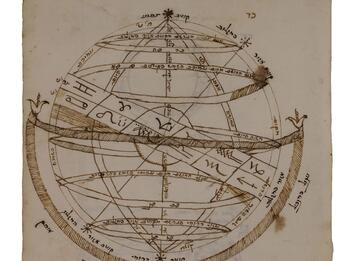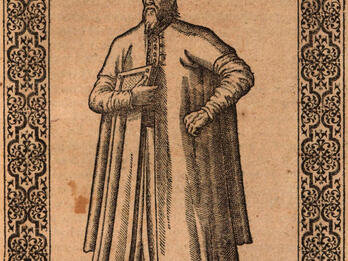Oath
Amatus Lusitanus
1559
I swear by the Eternal God and by His ten most holy commandments, which were given on Mount Sinai through Moses as lawgiver after the people had been freed from their bondage in Egypt, that I have never, at any time, done anything in these my treatments save what inviolate faith handed down to posterity; that I have never feigned anything, added…
Related Guide
Early Modern Trade and Mercantilism
International trade drove Jewish mobility during the age of mercantilism, as Jewish merchants formed wide commercial networks and partnerships and developed cosmopolitan attitudes that facilitated civic inclusion.

Related Guide
Education and Scholarship
The early modern period featured educational reforms, anti-Christian polemics, and growing Jewish university participation.
Creator Bio
Amatus Lusitanus
The physician and prolific scholar Amatus Lusitanus (João Rodrigues de Castelo-Branco) was born in Portugal to New Christian parents, who imparted to him a knowledge of Judaism and Hebrew. After studying medicine at the University of Salamanca, Amatus first practiced as a physician in Portugal. However, the growing hostility toward New Christian physicians led him to settle in Antwerp in 1553. Achieving great fame as a physician, Amatus was given a position as lecturer at the University of Ferrara in 1540 and attended nobles, royalty, and popes. Due to the increasing persecution of Jews and New Christians in Western Europe, he fled to the Ottoman Empire, living initially in Ragusa and later settling in Salonika, where he practiced Judaism openly. His seven volumes of Centuriae, each one of which includes one hundred medical case histories, are a treasury of information on seventeenth-century medicine. Lusitanus was the first to note that veins ensure the flow of blood in the proper direction.
You may also like
Responsum: On Philosophy



